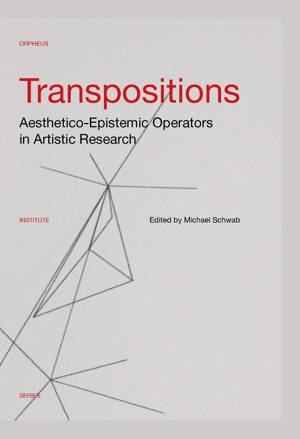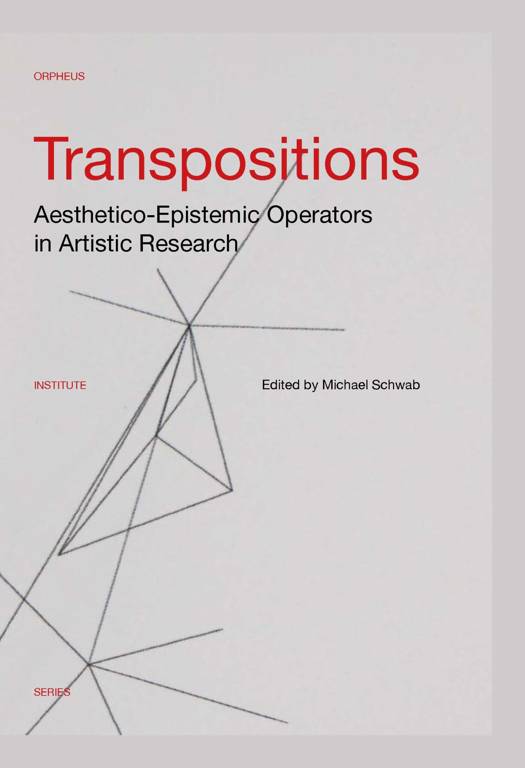
- Retrait gratuit dans votre magasin Club
- 7.000.000 titres dans notre catalogue
- Payer en toute sécurité
- Toujours un magasin près de chez vous
- Retrait gratuit dans votre magasin Club
- 7.000.0000 titres dans notre catalogue
- Payer en toute sécurité
- Toujours un magasin près de chez vous
Transpositions
Aesthetico-Epistemic Operators in Artistic Research
Description
Research is a process that leads to new insights rupturing the existent fabric of knowledge. To prevent this process from disintegrating, its coherence must be assured. Under the heading transposition, seventeen artists, musicians, and theorists explain how one thing may turn into another in a spatio-temporal play of identity and difference that has the power to expand into the unknown.
While it does not attempt to define the still evolving field of artistic research, through the idea of transposition this book aims to grasp a quality increasingly important to artistic practice because representational approaches have been losing traction. Taking to heart the lessons of deconstruction, new modes of epistemic relationships are being invented that include aesthetic dimensions. Working with materially concrete positions in a manner familiar to artists can ensure that knowledge does not decay into relativism.
Contributors: Annette Arlander (University of the Arts Helsinki), Paulo de Assis (Orpheus Institute, Ghent), Rosi Braidotti (Utrecht University), Leif Dahlberg (Royal Institute of Technology Stockholm), Lucia D'Errico (Orpheus Institute, Ghent), Mika Elo (University of the Arts Helsinki), Laura González (Royal Conservatoire of Scotland), Esa Kirkkopelto (University of the Arts Helsinki), Yve Lomax (Royal College of Art, London), Cecile Malaspina (CNRS-Université Paris 1/Université Paris 7), Tor-Finn Malum Fitje (independent artist, Oslo), Dieter Mersch (Zurich University of the Arts), David Pirrò (University of Music and Performing Arts Graz), Hans-Jörg Rheinberger (Max Planck Institute for the History of Science, Berlin), Hanns Holger Rutz (University of Music and Performing Arts Graz), Michael Schwab (Orpheus Institute, Ghent/University of Applied Arts Vienna),
Birk Weiberg (Zurich University of the Arts)
Spécifications
Parties prenantes
- Editeur:
Contenu
- Nombre de pages :
- 300
- Langue:
- Anglais
- Collection :
Caractéristiques
- EAN:
- 9789462701410
- Date de parution :
- 15-11-18
- Format:
- Livre broché
- Format numérique:
- Trade paperback (VS)
- Dimensions :
- 201 mm x 279 mm
- Poids :
- 952 g

Les avis
Nous publions uniquement les avis qui respectent les conditions requises. Consultez nos conditions pour les avis.





